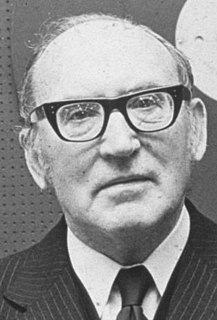A Quote by Seymour Papert
Similarly, computer literacy courses tend to produce computer people who know a lot about computers or a piece of software but they don't help people become fluent with the machine.
Related Quotes
I've never been much of a computer guy at least in terms of playing with computers. Actually until I was about 11 I didn't use a computer for preparing for games at all. Now, obviously, the computer is an important tool for me preparing for my games. I analyze when I'm on the computer, either my games or my opponents. But mostly my own.
Composing computer programs to solve scientific problems is like writing poetry. You must choose every word with care and link it with the other words in perfect syntax. There is no place for verbosity or carelessness. To become fluent in a computer lnaguage demands almost the antithesis of modern loose thinking. It requires many interactive sessions, the hands-on use of the device. You do not learn a foreign language from a book, rather you have to live in the country for year to let the langauge become an automatic part of you, and the same is true for computer languages.
The attribution of intelligence to machines, crowds of fragments, or other nerd deities obscures more than it illuminates. When people are told that a computer is intelligent, they become prone to changing themselves in order to make the computer appear to work better, instead of demanding that the computer be changed to become more useful.
Collections are certainly abundant online. It's complicated, because it's not like these people didn't want computers, although there was some nonchalance about it. I would sometimes ask the people I interviewed if they wished they had a computer, and in a lot of cases, it was like they couldn't process the question. You don't know what you don't have, I guess.








































